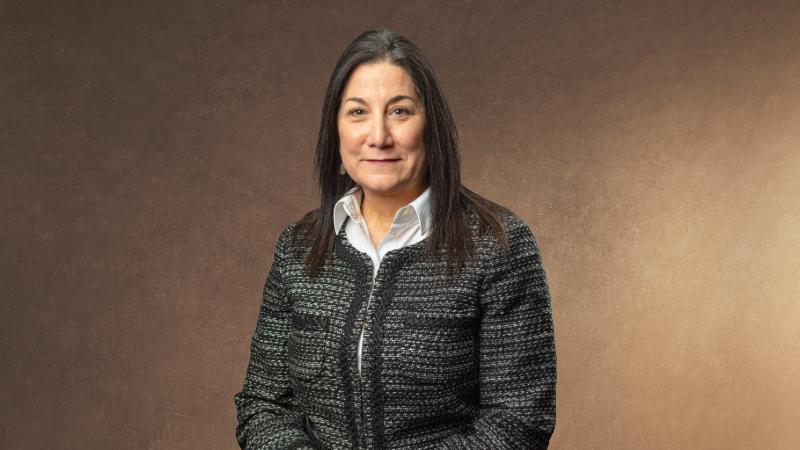
August 11, 2021
You can't open a newspaper or look at social media without seeing information about the SARS-CoV-2 Delta variant. As a laboratory scientist I have to clarify that SARS-CoV-2 is technically the virus, whereas COVID-19 is the disease caused by the virus. But for purposes of this article, we’ll call it COVID-19. The Delta variant's rapid rise is capturing headlines, and rightfully so. Today, 154 people in Montana are hospitalized due to complications from COVID-19, and the Delta variant has quickly become the dominant strain in the U.S.
But the headlines won't ever capture the entire story because studying the virus is complex. That's why I'd like to break it down and answer some common questions that we hear in the St. Peter’s lab, as well as outline why vaccinations are so vitally important in our ongoing fight against COVID.
What is the Delta variant? Are there other variants?
There are many COVID-19 variants. The World Health Organization (WHO) has designated many, including some that are relatively unknown like the Iota and Kappa variants.
According to the CDC, "scientists monitor all variants but may classify certain ones as variants of interest, concern, or high consequence based on how easily they spread, how severe their symptoms are, and how they are treated."
The Delta variant is a variant of concern (VOC) as it spreads much faster than any other variant and may cause more severe illness. According to recent data from the CDC, the Delta variant is likely around two times as contagious as any other variant.
Why do viruses mutate?
The more a virus replicates/spreads, the more likely it is to mutate. National Geographic aptly compared a virus mutation to a typo in the virus's RNA. Many typos, or virus mutations, harm the virus and reduce its reproductive ability; therefore, they do not spread. Some replications don't impact the virus's behavior. While others, like the Delta variant, actually make the virus more successful at replicating, jumping from person to person and becoming the dominant strain.
Can we prevent COVID-19 from mutating?
Not entirely, but we can slow it down. Vaccination is key to slowing the rate at which COVID-19 mutates. We cannot determine if a mutation will be more deadly, more contagious, impact children more severely, evade the vaccine, etc. We need to take advantage of what we can control, and that's vaccination—the less transmission of the virus, the fewer opportunities for typos/mutations.
Do COVID-19 tests detect variants?
Yes. COVID-19 PCR tests, which most people receive when tested for the virus, detect all currently circulating variants. However, when you run a PCR test, it doesn't automatically tell you what virus strain is present. To do this, the sample must be sequenced. Laboratories are doing this for many samples to identify and track variants. Bottom line: currently, if you get a COVID-19 PCR test, you will know whether you have COVID-19 or not, regardless of the variant you have. Regardless of vaccination status, it’s important for anyone experiencing COVID-19 symptoms or those who have been contact-traced due to exposure to get tested.
Is the Delta variant more dangerous?
Yes. The Delta variant spreads rapidly, and there is mounting evidence that the virus may be more clinically dangerous. Remember, a rapidly spreading virus is more dangerous to everyone because high community transmission can strain health care systems and the people who are integral to providing care and saving lives.
Do COVID-19 vaccines protect against the Delta variant?
Yes! COVID-19 vaccines are effective against the Delta variant, especially at preventing severe illness, hospitalization and death. The Delta variant is the dominant variant in the U.S. right now, and recently the CDC shared that nationwide around 97 percent of hospitalizations are among the unvaccinated.
What is a 'breakthrough' case? Why do they happen?
"Breakthrough cases" are when fully vaccinated people test positive for COVID-19. They happen relatively rarely, and they're expected, especially in areas with high transmission since the vaccine is not 100 percent effective. We think that the term is a little misleading because even with breakthrough cases, the vaccine is still doing its job and helping blunt the severity of the illness. Most breakthrough cases result in asymptomatic or mild/moderate illness. It is very rare for a breakthrough case to result in hospitalization or death. Especially if you are immunocompromised or have other risk factors, breakthrough cases can still be severe or deadly. The rapid spread of COVID-19 locally and across the United States continues to place our vulnerable community members at risk.
Can I still give someone the Delta variant, or any other variant, even if I am vaccinated?
Yes. If you're vaccinated, it is possible to spread the Delta variant, but you have a greater chance of doing so if you're unvaccinated. Unlike other variants, the Delta variant is so contagious there is evidence that vaccinated people can harbor the virus and transmit it to others. Some people question why they should get vaccinated if they can give the virus to others? The answer is simple: the more people who are vaccinated, the less spread of the virus. Plus, you're less likely to give it to others if you're vaccinated.
Why should I get vaccinated if I am young and healthy?
The number one thing people filling Intensive Care Units (ICU) and hospitals in the United States have in common is not age or underlying conditions. It is vaccination status. Not being vaccinated is the number one risk factor for severe COVID-19 at this point. At St. Peter's, we recently had three people hospitalized due to complications from COVID-19 in our ICU. Two of the three were under the age of 55. You do not know how COVID-19 will impact you or your loved ones. Even people who had relatively mild courses of the illness can have "long-hauler" symptoms or symptoms that persist months after diagnosis, changing daily life.
Why do we see changing recommendations from the CDC or other public health officials?
Viruses change. We must change our behavior along with them. The recommendation changes are in response to a changing virus. I implore you to be flexible, even if it means adding your mask to your wardrobe, again.
The most important thing to remember is that if more people get vaccinated, fewer people will get sick and fewer people will die. Please get vaccinated. Don't spread misinformation, be adaptable, be kind and stay informed.
Lab Scientist Matt Aakre, CLSp(Mb) is the laboratory services operation manager and a member of the St. Peter’s Health COVID-19 response incident command team.



